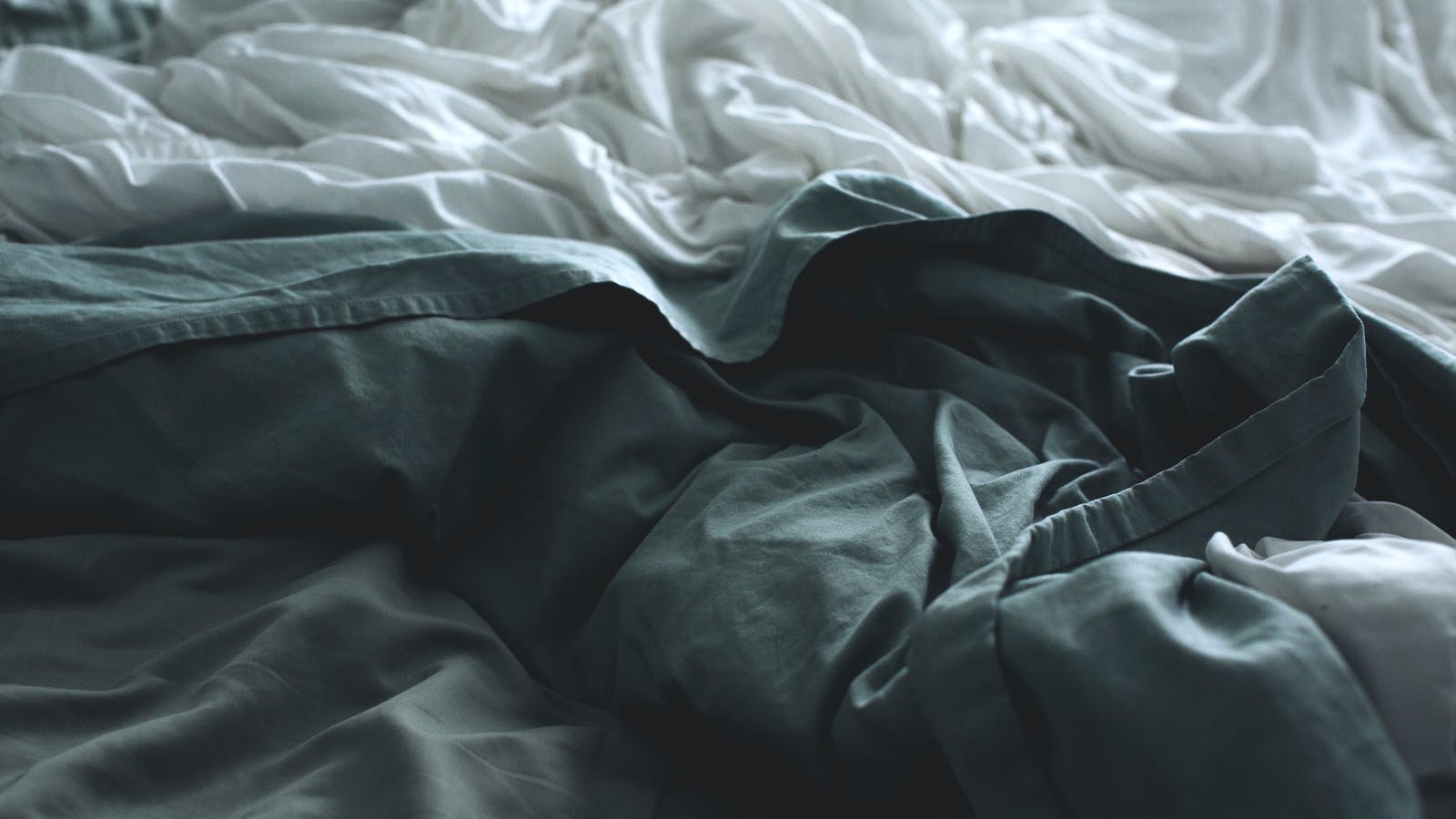A pillar of our well-being, sleep represents the most accomplished form of rest. We spend almost a third of our lives asleep, with the aim of allowing the body to recover, whether physically or mentally. Yes, we know today that it is essential for many biological functions such as growth, memory, immunity and even metabolism. Unfortunately, we see that many are affected by occasional or chronic sleep disorders. This is why, through this article, we want to help you understand what could alter it and therefore put all the chances on your side to promote healthy and restorative sleep.
What is a typical night’s sleep like?
Sleep corresponds on average to a succession of 3 to 6 sleep cycles of 60 to 120 minutes. Whether in children, adolescents, adults or the elderly, these cycles are equivalent to an alternation of slow-wave sleep and paradoxical sleep , two very distinct states of vigilance:
- Slow wave sleep consists of light slow wave sleep and deep slow wave sleep. After the falling asleep phase, the light sleep phase sets in. It represents 50% of total sleep time . During this phase, brain activity is slowed down and eye and muscle activities are reduced, but it is still easy to wake up due to external nuisances such as light or noise. It is followed by a deep sleep phase, which represents approximately 20 to 25% of sleep time . Brain activity is slowed down even further: the brain becomes almost insensitive to external stimulation. It is therefore during this deep sleep phase that the body recovers the most. Know that this phase mainly occurs at the beginning of the night, hence this old precept which states that the most restorative hours are those before midnight.
- REM sleep is also known as rapid eye movement (REM) sleep. This time of psychic reconstruction represents 20 to 25% of sleep time and corresponds to the time when we dream the most . During this phase, we simultaneously present signs of deep sleep (relaxed body and paralyzed muscles) and signs of awakening (cerebral activity and eye movements), hence the paradox. The duration of REM sleep increases throughout the night and is much greater at the end of the night. Know that it is during this phase that the most elaborate dreams occur and those that we remember when we wake up.
Note that there are significant inter- and intra-individual variations due to the age, physiology and lifestyle habits of each individual. It is these variations that mean that we are not all equal when it comes to sleep and that you will therefore never have the same sleep as your neighbor.
What are the reasons why we don't get the same sleep?
With the explosion of new technologies and the numerous changes in work rhythms, our sleep is also put to the test. We notice that more than half of French people today suffer from sleep disorders... But then why are we so concerned by these disorders which ruin our lives?
Factors that impact our daily sleep
A hectic pace of life
Family and professional constraints today lead to recurring intellectual and physical fatigue . Often the cause of anxiety, stress, nervousness, tension accumulates and considerably disrupts sleep. Indeed, muscular tension and sleep are incompatible since, to fall asleep, the body must be relaxed and relaxed. In addition, be aware that night work or, more broadly, working atypical hours harms the quality of sleep since it is not adapted to our chronobiological rhythms. So start by releasing the pressure and pruning your schedule to get some restful sleep.
A less than ideal lifestyle
Diet and sports activity significantly impact our ability to fall asleep quickly. If physical activity is intense and practiced shortly before bedtime , it becomes difficult to fall asleep. On the contrary, if it is moderate and practiced 4 hours before bedtime, it reduces the time it takes to fall asleep. As for diet, it is obvious that we must be careful with everything we consume before sleeping: a copious meal, rich in proteins and fats can in particular make it harder to fall asleep and fragment sleep, on the contrary. 'a light meal, rich in carbohydrates with a low glycemic index. Note that all stimulants (caffeine, nicotine, alcohol, and other stimulants) should be avoided 4 hours before bedtime! Yes yes, we do violence to ourselves and we also avoid the chocolate bar before sleeping. ;)
Many environmental stimuli
If during the night, our body is at rest, it continues to perceive external stimuli , particularly during the light sleep phase. Noise , depending on its sound level and unusual nature, can cause nighttime awakenings. Likewise, the temperature of the room can impact the quality of sleep: any fluctuation in external temperature disrupts sleep since the body will do everything possible to stabilize body temperature. Finally, we know that total darkness promotes the secretion of melatonin, the sleep hormone. Light , even very dim, can cause difficulty falling asleep and waking up at night. We can't repeat it enough: be careful about using screens before bed...
The non-modifiable factors that affect our sleep without warning
The impact of the years on sleep
The stages of sleep remain the same throughout life but their organization evolves. Deep sleep , essential for the growth and development of the body, is greatest in infants and children and decreases with adulthood to give way to lighter sleep . Indeed, sleep needs decrease as the body ages. Unfortunately, light sleep is more accompanied by nighttime awakenings . This is why most elderly people complain of their restless night and return to the short nap at the beginning of the afternoon.
Physiological state
Here is another factor that affects the quantity and quality of sleep. Pregnancy , accompanied by its numerous hormonal changes, is for example well known as a situation that modifies sleep. A physical or mental condition , such as hyperthyroidism, depression or rheumatism, can also increase or decrease sleep duration. Added to these disorders are sleep disorders which lead to a significant deterioration in the quality of sleep. We find insomnia, sleep apnea which is breathing pauses, restless legs syndrome, parasomnias, narcolepsy, etc. In these cases, it is best to discuss with a healthcare professional to find a safe and lasting solution.
The power of genes
Finally, genetics would help differentiate heavy sleepers from short sleepers . They each have their own sleep rhythm , with their own schedules and habits. Heavy sleepers aren't lazy, they simply need more sleep to feel rested. For small and heavy sleepers, the amount of deep sleep remains the same . The difference is seen more in the amount of light and paradoxical sleep, higher in heavy sleepers . So yes, no little sleeper wants that.
And what about the moon?
Researchers at the University of Washington have studied the impact of the Moon's cycles on our sleep and explain that they have observed a variation in sleep cycles during the lunar cycle . Indeed, during the five days preceding the full Moon, people fall asleep later and sleep less , whether in the city or in the countryside. The ubiquity of this phenomenon could indicate that our natural circadian rhythms are synchronized with the phases of the lunar cycle.
To conclude on this subject, even if we cannot change certain physiological factors, it is possible to vary the duration of sleep and improve its quality by modifying our environment as well as our lifestyle. To target the efforts to be undertaken, start by examining your daily behaviors in terms of physical and mental activities, lifestyle and sleeping environment. You can then focus on implementing behaviors that promote sleep. In the field of food supplements, you can also find natural solutions to promote healthy and restful sleep.
Bibliographic references:
https://www.inserm.fr/dossier/sommeil/
https://solidarites-sante.gouv.fr/IMG/pdf/Sommeil_un_carnet_pour_mieux_comprendre.pdf
https://educationsante.be/le-sommeil/
https://www.ameli.fr/paris/assure/sante/themes/insomnie-adulte/definition-facteurs-favorisants
https://www.cenas.ch/le-sommeil/comprendre-le-sommeil/phases-du-sommeil/

